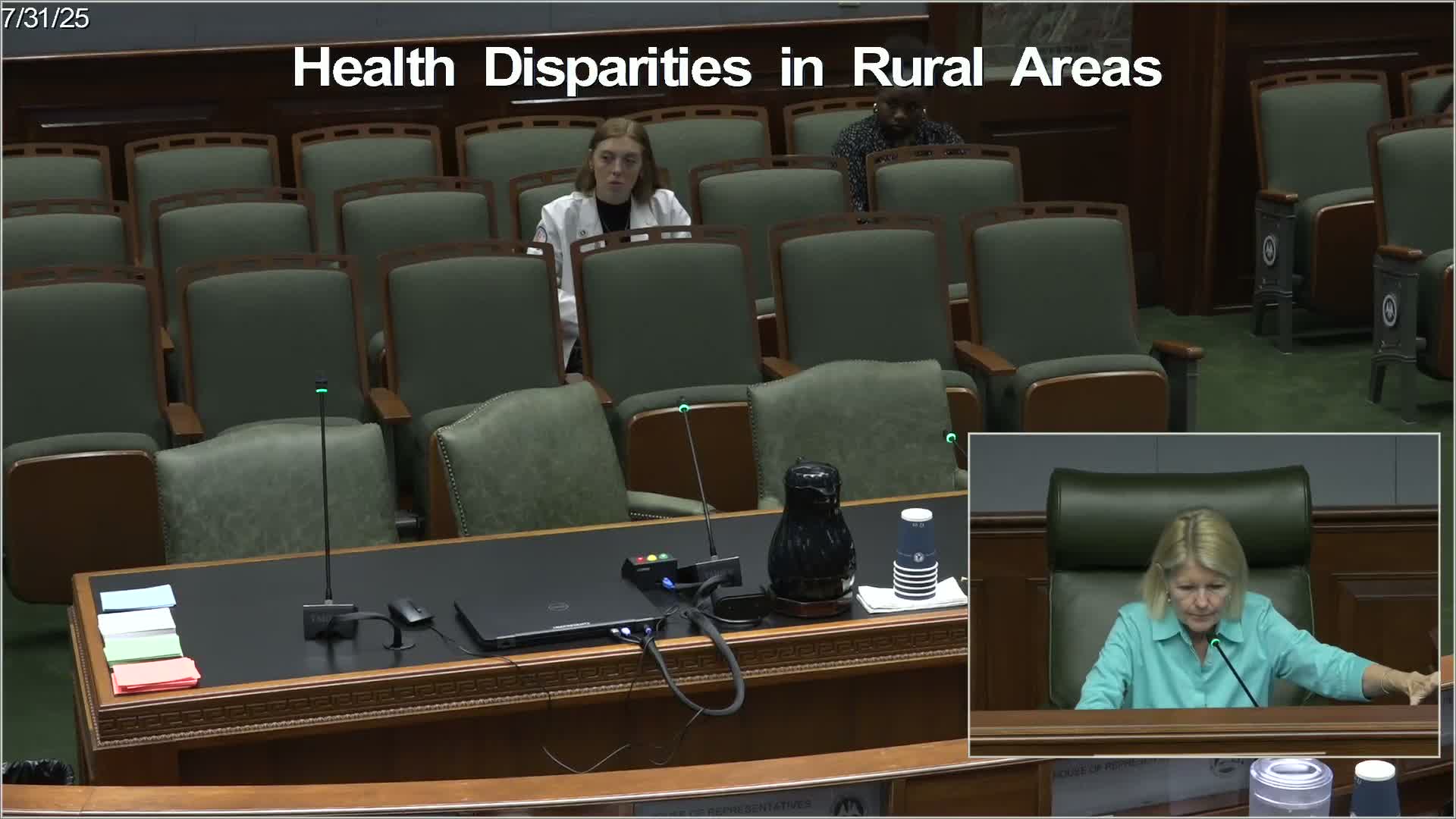Louisiana Health Disparities Task Force to Address Rural Healthcare Issues
July 31, 2025 | 2025 Legislature LA, Louisiana
This article was created by AI summarizing key points discussed. AI makes mistakes, so for full details and context, please refer to the video of the full meeting. Please report any errors so we can fix them. Report an error »

The Louisiana Legislature's House Health Disparities Task Force convened on July 31, 2025, to address critical health issues affecting rural communities across the state. The meeting, which included a diverse group of healthcare professionals and representatives from various health organizations, focused on the ongoing challenges faced by Louisiana's rural populations, particularly in light of the COVID-19 pandemic.
One of the key discussions centered around the continuation of the Health Disparities in Rural Areas Task Force, established in 2022. The task force aims to identify and study significant health issues impacting rural areas and develop strategies to improve health outcomes for underserved communities. Members emphasized the importance of submitting a comprehensive report to the House and Senate committees on health and welfare by February 1, 2026, detailing their findings and recommendations.
The meeting highlighted alarming statistics regarding health disparities in Louisiana. Nearly 29% of the state's population, over 1.2 million residents, live in rural areas, which comprise about 80% of Louisiana's geographic landscape. Furthermore, 60 out of 64 parishes are classified as health professional shortage areas, with approximately 98% of the population residing in federally designated health professional shortage areas. These figures underscore the urgent need for targeted healthcare initiatives and funding to address the unique challenges faced by rural communities.
The task force also welcomed new members and staff from the Louisiana Department of Health, who expressed their commitment to enhancing collaboration and support for rural health initiatives. The focus will be on increasing partnerships and ensuring that local stakeholders are involved in addressing healthcare needs.
As the meeting concluded, members reiterated their dedication to mitigating health disparities and improving access to quality healthcare for all Louisianians, particularly those in rural areas. The task force's ongoing efforts will be crucial in shaping policies and programs that directly impact the health and well-being of these communities.
One of the key discussions centered around the continuation of the Health Disparities in Rural Areas Task Force, established in 2022. The task force aims to identify and study significant health issues impacting rural areas and develop strategies to improve health outcomes for underserved communities. Members emphasized the importance of submitting a comprehensive report to the House and Senate committees on health and welfare by February 1, 2026, detailing their findings and recommendations.
The meeting highlighted alarming statistics regarding health disparities in Louisiana. Nearly 29% of the state's population, over 1.2 million residents, live in rural areas, which comprise about 80% of Louisiana's geographic landscape. Furthermore, 60 out of 64 parishes are classified as health professional shortage areas, with approximately 98% of the population residing in federally designated health professional shortage areas. These figures underscore the urgent need for targeted healthcare initiatives and funding to address the unique challenges faced by rural communities.
The task force also welcomed new members and staff from the Louisiana Department of Health, who expressed their commitment to enhancing collaboration and support for rural health initiatives. The focus will be on increasing partnerships and ensuring that local stakeholders are involved in addressing healthcare needs.
As the meeting concluded, members reiterated their dedication to mitigating health disparities and improving access to quality healthcare for all Louisianians, particularly those in rural areas. The task force's ongoing efforts will be crucial in shaping policies and programs that directly impact the health and well-being of these communities.
View full meeting
This article is based on a recent meeting—watch the full video and explore the complete transcript for deeper insights into the discussion.
View full meeting
